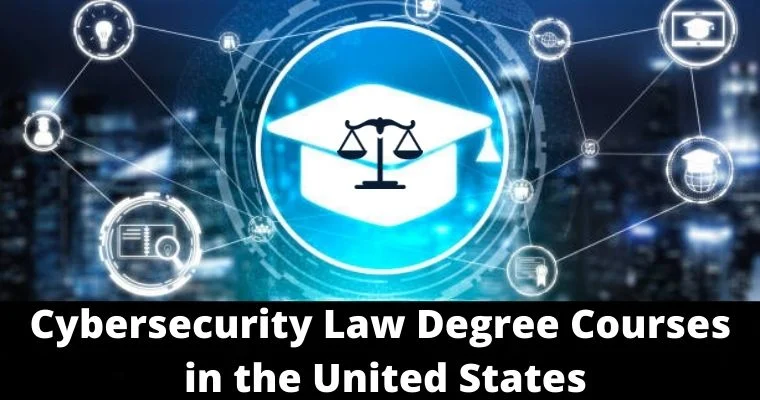Computer security is another aspect of security that can also use computer security in conjunction with cybersecurity or information technology security (IT security), which refers to the protection of computer systems and networks against data leakage, theft, damage, and disruption of services from cyberattacks.
With the increased use of computer systems, the Internet, and wireless communication standards like Bluetooth and WiFi and the growth of “smart” devices such as smartphones, televisions, etc.
Hence, Cybersecurity is a priority for the Indian government. Cyberspace must be made safe and secure in light of the rapid development of information technology.
Table of Contents
Various Facets of the Cybersecurity Course at the University of Nebraska
Introducing the Master of Science in Cybersecurity (CYBR) at the University of Nebraska at Omaha beginning Fall 2012 semester, the School of Interdisciplinary Informatics meets the need for security experts by offering the degree.
Managing information-related risks can manage risks associated with data and manage Information-related risks by maintaining confidentiality, integrity, authentication, availability, and non-repudiation of data through Cybersecurity.
Cybersecurity is also available to graduate students specializing in Computer Science (CS) or Management Information Systems (MIS).
Program Objective:
Master of Science (MS) programs in Cybersecurity (previously information assurance) are offered by the School of Interdisciplinary Informatics (Si2).
As a rapidly growing, multifaceted science that consists of various disciplines that collectively address fundamental problems for the design, development, implementation, and operations of secure information systems, the study of cyber-security.
Hence, students who earn a Master of Science degree will develop theoretical and practical skills to protect information systems.
There are two paths on which the degree can be awarded; cyber operations, where students will concentrate on highly technical content, and interdisciplinary, where they can focus on their own personal and professional goals.
In addition to the thesis option, students can complete a capstone project depending on their particular interests.
Program Overview:
As part of the master’s degree program at the University of Nebraska, students will choose between two tracks: system development and management.
The cybersecurity systems track is designed to appeal to those who desire a more technical approach to Cybersecurity.
Students of the program will focus more on encryption, malware, secure software, and the theoretical foundations of information security. Cybersecurity policy and management is the focus of the leadership track.
It is geared to managers with an interest in management information. The course would include topics in the design, creation, and enforcement of a necessary policy for assurance, disaster recovery techniques, and important business practice formulations.
As part of the program, students are expected to draw upon their previous coursework and experience in Computer Science or Management Information Systems depending on the track they selected.
Additionally, students can choose between a thesis option and a capstone option as part of the Master of Science degree program.
Cybersecurity research and doctoral study require a thesis option. If you are interested in actively researching Cybersecurity or pursuing a doctorate, we recommend this route.
Students seeking a more practical education and may wish to specialize in Cybersecurity may benefit from the capstone course option.
Students choosing this option will have to complete a capstone course that will require them to work on practical security issues related to current issues.
Students must present research results but are not required to write a thesis about their research.
There are 33 hours of required study in each degree pathway, which share a set of prerequisite courses. The courses within this body of knowledge cover the majority of cyber-security content.
Students also have the opportunity to explore several different areas utilizing core concepts in non-core courses.
In this context, we cover information warfare, forensics, software reverse engineering, secure software engineering, and corporate management of security policies for information technologies.
Results of the learning activity:
- Ensure the achievement of a common goal while maintaining rigorous ethical, legal, and responsible behavior standards.
- Design a clear and concise presentation to present the problem, the security issues, the requirements, and the proposed solution.
- Implement security requirements based on an analysis of a problem and its solution.
Eligibility Criteria:
- To be eligible for the MS in Cybersecurity program at the University of Nebraska, applicants must have earned a bachelor’s degree from a regionally accredited, four-year institution of higher learning or the equivalent foreign institution and have earned a GPA of 3.0 (on a 4.0 scale).
- An applicant’s maturity, motivation, employment history, writing samples, work experience, and other accomplishments will also be considered when determining admission criteria.
- The university also uses the GRE and TOEFL scores and other factors highlighted above to determine the admission status of international applicants.
Conclusion:
In the fast-paced and growing digital environment, Cybersecurity is a major concern. To defend from cybercriminals and teach others to do the same, we need to learn how to defend them.
Visit our courses section for more information about the definition of Cybersecurity and how to defend yourself against cybercriminals.

